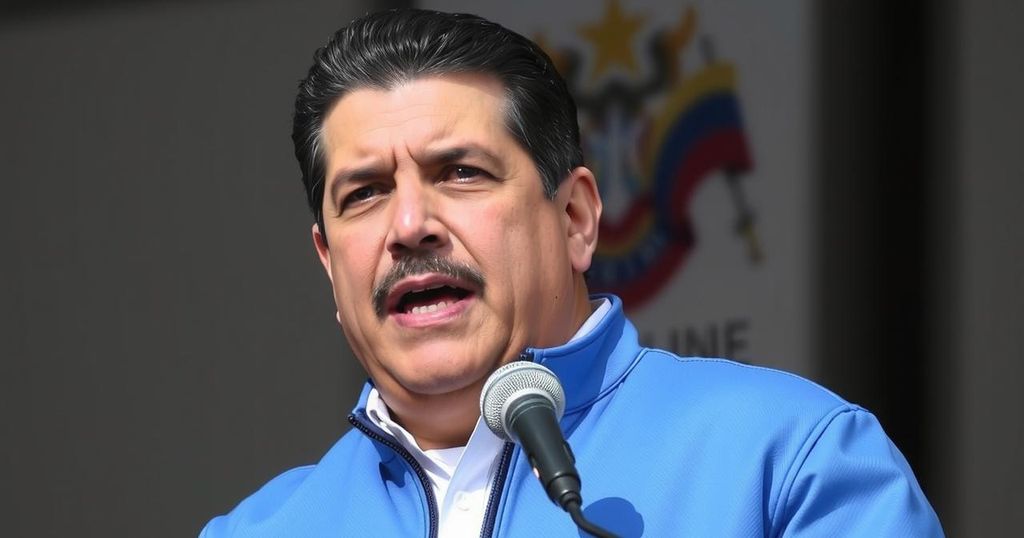Maduro Set for Controversial Inauguration Amid Protests and Allegations of Fraud

Venezuelan President Nicolás Maduro is to be inaugurated for a third term on January 9, 2025, despite serious allegations of electoral fraud and significant protests led by opposition leader María Corina Machado. Claims that Edmundo González, the opposition’s candidate, legitimately won the election spurred unrest, leading to Machado’s reported detention. The refusal of both international leaders and electoral authorities to recognize Maduro’s victory underscores the ongoing crisis in Venezuelan governance.
On January 9, 2025, Nicolás Maduro is set to be sworn in for a third term as President of Venezuela amidst significant controversy and allegations of electoral fraud. Despite the widespread protests and claims from opposition leader María Corina Machado that her candidate, Edmundo González, had legitimately won the election, Maduro’s regime continues to assert its legitimacy without transparent vote counts. Tensions escalated as Machado was reportedly detained while advocating for González’s recognition as the rightful president, prompting condemnation from both regional leaders and international observers.
The Venezuelan government declared Maduro the election victor hours after the polls closed on July 28, 2024; however, this election was distinguished by the lack of detailed vote counts, unlike previous contests. Opposition groups, which were severely restricted from participating, gathered data from voting machines suggesting González received substantially more votes than Maduro. Amidst claims of transparency hurdles, Maduro tasked the country’s highest court, populated by his allies, to validate the results, further fueling skepticism over the integrity of the process.
The legitimacy of the election outcome has provoked widespread protests, with demonstrations resulting in over 2,000 arrests and numerous instances of violence against dissenters. Reports indicate more than 20 fatalities among protesters, highlighting the severe measures employed by the government to stifle opposition. As Maduro prepares for his inauguration, the international community questions his legitimacy, with leaders like Colombian President Gustavo Petro declining to attend the ceremony.
Complications ensue as Edmundo González remains in exile, uncertain of his potential return to Venezuela due to threats from the Maduro government. González’s claims of government-led intimidation, including the alleged kidnapping of his relatives in Caracas, underscore the oppressive environment surrounding forthcoming political events. As the inauguration approaches, the crisis in Venezuela reflects deeper conflicts regarding electoral fairness, civil rights, and the struggle for democratic governance in the region.
The political situation in Venezuela has been marked by ongoing controversies surrounding electoral integrity and human rights violations under Maduro’s leadership. This current challenge stems from the government’s alleged manipulation of electoral processes, which has led to widespread accusations of fraud and suppression of dissenting voices. The opposition, spearheaded by figures such as María Corina Machado and Edmundo González, has sought to contest these actions but faces significant obstacles, including intimidation and government-sanctioned violence. The international community, observing these developments, reacts with both concern and condemnation, as the political landscape continues to evolve.
In conclusion, Nicolás Maduro’s impending inauguration illustrates the contentious political climate in Venezuela, characterized by allegations of electoral malpractice and human rights abuses. The situation emphasizes the stark divide between the ruling government and opposition forces, exacerbated by violent suppression of dissent and significant challenges to the legitimacy of election results. International criticism and calls for democratic accountability highlight the urgent need for a reassessment of governance and electoral practices in Venezuela. Without significant change, the prospects for peaceful political resolution remain bleak, leaving the nation in uncertainty.
Original Source: apnews.com







